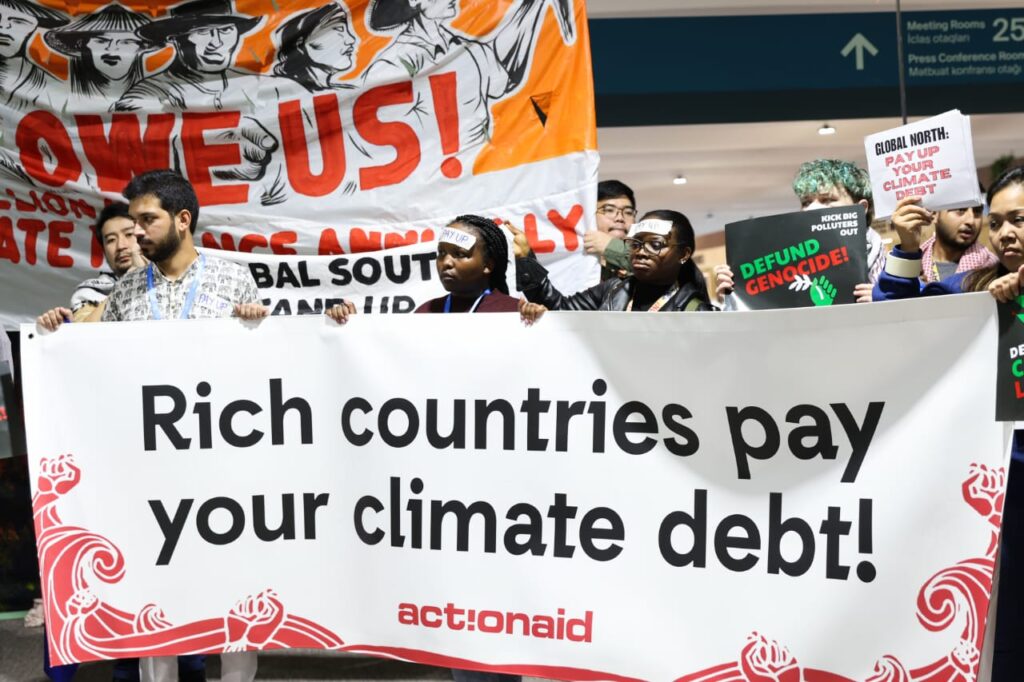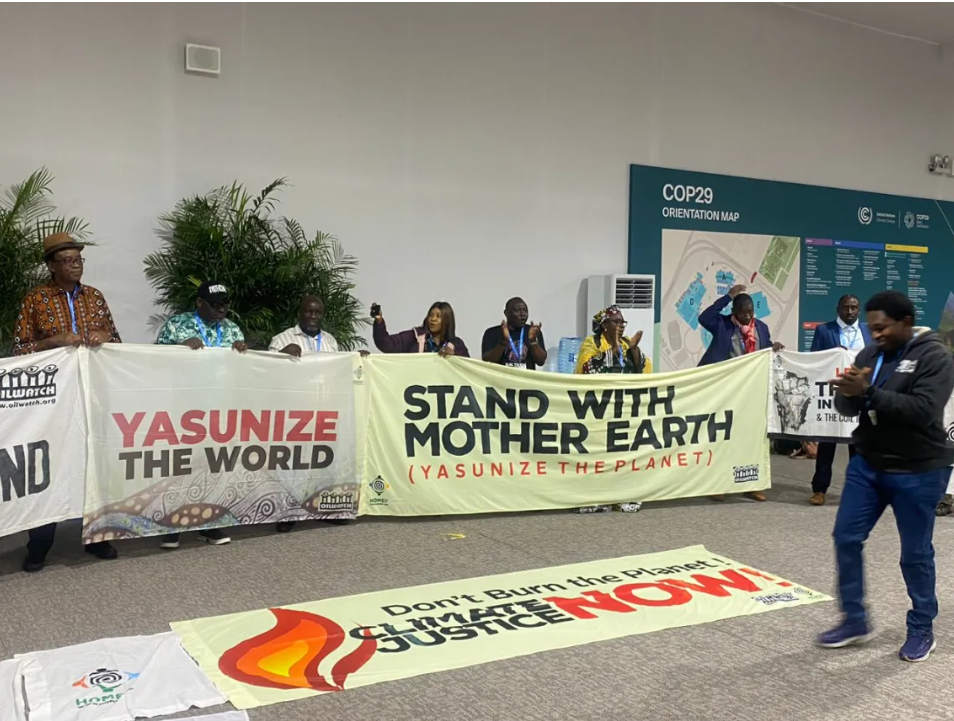By Joke Kujenya
AT COP29 in Baku, Azerbaijan, civil society groups, including the Africa Make Big Polluters Pay (MBPP) movement, have gathered to demand urgent climate action.
During a People’s Plenary on 22 November, activists from both the Global South and North united under the theme “Pay Up, Stand Up: Finance Climate Action, Not Genocide”.
They condemned the destructive practices of the Global North, highlighting the impact of neocolonialism, genocide, and the unchecked fossil fuel consumption driving the climate crisis.
Also, the plenary featured diverse groups, including indigenous communities, women’s organisations, disabled persons’ groups, and labour unions, all voicing their commitment to fighting for climate justice.
The session stressed the urgent need for global accountability, with participants calling for an equitable global response to the climate crisis, one that acknowledges the disproportionate impacts on vulnerable populations.
Moreover, the plenary highlighted the injustices faced by vulnerable communities, with a focus on the disproportionate impact of environmental exploitation on marginalized groups.
Through heartfelt speeches, they painted a vivid picture of the devastating consequences of unchecked fossil fuel consumption and environmental destruction driven by neocolonialism.
Activists from indigenous communities, women’s groups, disabled persons’ organisations, and labour unions were united in their call for global accountability.
Speaking with raw emotion, Lebanese climate activist Baturi Nuru Habin linked the climate crisis to the ongoing wars in her homeland, stating, “There’s no climate justice with blood on our hands.”
Her words reverberated as she urged global leaders to recognize the interconnection between environmental destruction and human suffering.
As the plenary took place just outside the negotiation rooms, where world leaders struggled to agree on a climate finance deal, the group’s solidarity demonstrated their frustration with the lack of real action.
The activists’ resolve was clear: they are not just fighting for the survival of the planet but for the dignity and lives of the people who suffer most from the climate crisis.

Christina Chock, speaking on behalf of indigenous groups, passionately declared, “The future belongs to us as indigenous people.
“We gather here to amplify our voices for our mother earth and our children.”
She echoed the sentiment that no decisions should be made without the involvement of those most affected by the climate disaster.
Furthermore, Chock’s words struck a chord with activists present from Africa, Asia, and Latin America, where the effects of climate change are already wreaking havoc.
From the droughts in sub-Saharan Africa to the devastating floods in Asia, the Global South continues to bear the brunt of the crisis, despite contributing the least to global emissions.
The plenary was a stark reminder that climate finance is not just about numbers; it is about justice, reparations, and ensuring a livable future for everyone.
Additionally, Anna Bohushenko of the Climate Action Network for Eastern Europe and Central Asia added, “We will not stop fighting, not today, not tomorrow, not ever.”
These words symbolized the unwavering commitment of the movement to push governments to take real action.
The session ended with a resounding pledge to hold governments accountable and to demand that the Global North pays its fair share in the form of $5 trillion per year in climate finance to the Global South.
The activists’ message was clear: the climate finance debate at COP29 cannot be reduced to technicalities and political manoeuvres. It is a matter of life and death.
For those in the Global South, the struggle is not just about surviving climate change, but about demanding justice for decades of environmental harm caused by the world’s wealthiest nations.
As the plenary wrapped up, the participants reaffirmed their commitment to fighting for climate justice, a fair and ambitious climate finance framework, and an end to ecocide.
Their message was simple yet powerful: “We will continue to fight for the $5 trillion per year climate debt owed by the Global North to the Global South, and we will not rest until our governments deliver real solutions for justice and dignity for all.”
Without a doubt, their presence at the COP29 served as a powerful reminder that the fight for climate justice is not just a political struggle, but a deeply human one.
They noted that their stance was about standing in solidarity with the most vulnerable, and as well, amplifying their voices, towards ensuring that the world’s leaders act with urgency and integrity to address the climate crisis.





